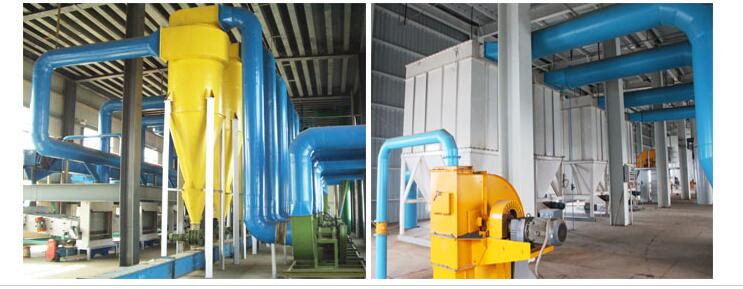Main Steps of Edible Oil Production Process

Oilseed Pretretment, Oil Pressing, Solvent Extraction and Edible Oil Refinery are the 4 maine steps of the edible oil production. We will show you detail below!
1. Oilseed Pretreatment
Oilseed pretreatment refers to a series working steps of getting rid of impurities from the oil bearing materials, which can make the oilseeds in the best condition before being pressed and extracted and is able to make the most oil out. These impurities here generally refer to the following two items: The organic impurities: such as the stem leaf, cord, chemical fibers, velveteen and their seeds; The inorganic impurities: such as soil, metal, about oil-bearing impurities.
Pretreatment is the part where the seeds are procured, cleaned, flaked, and cooked so that the oil extraction process can be carried out in a more efficient manner, so that the final output or the extracted oil is of the highest quality.
Workshop View:

2. Oil Pressing
Oil Pressing or you can call it expeller pressing, is a traditional oil extraction method that has been used for centuries. The pressing process is chemical-free, it is a mechanical method for extracting oil from vegetables, nuts and seeds by physics pressure. Oil pressing ranges in capacity from less than 1 ton to over 50 tons per day, and today the expeller press is universally used for the continuous mechanical extraction of oil regardless of the size of the operation. Generally speaking, there are two processing systems for oil pressing, one is Pre-pressing (combination with solvent extraction) and the other is Full-pressing (a true mechanical oil extraction process).
Usually the mechanical pressing method provides yields of only 65-70% of the oil, and 80% is considered very good. Most large commercial operations use a mild pressing operation to extract 60 to 70% of the oil, while the remainder is solvent-extracted.
4 Advantages of Expeller Pressing
Low initial investment cost;
Higher-value edible oil and meal;
Less complex operation;
Versatile to process many kinds of oil seeds.
